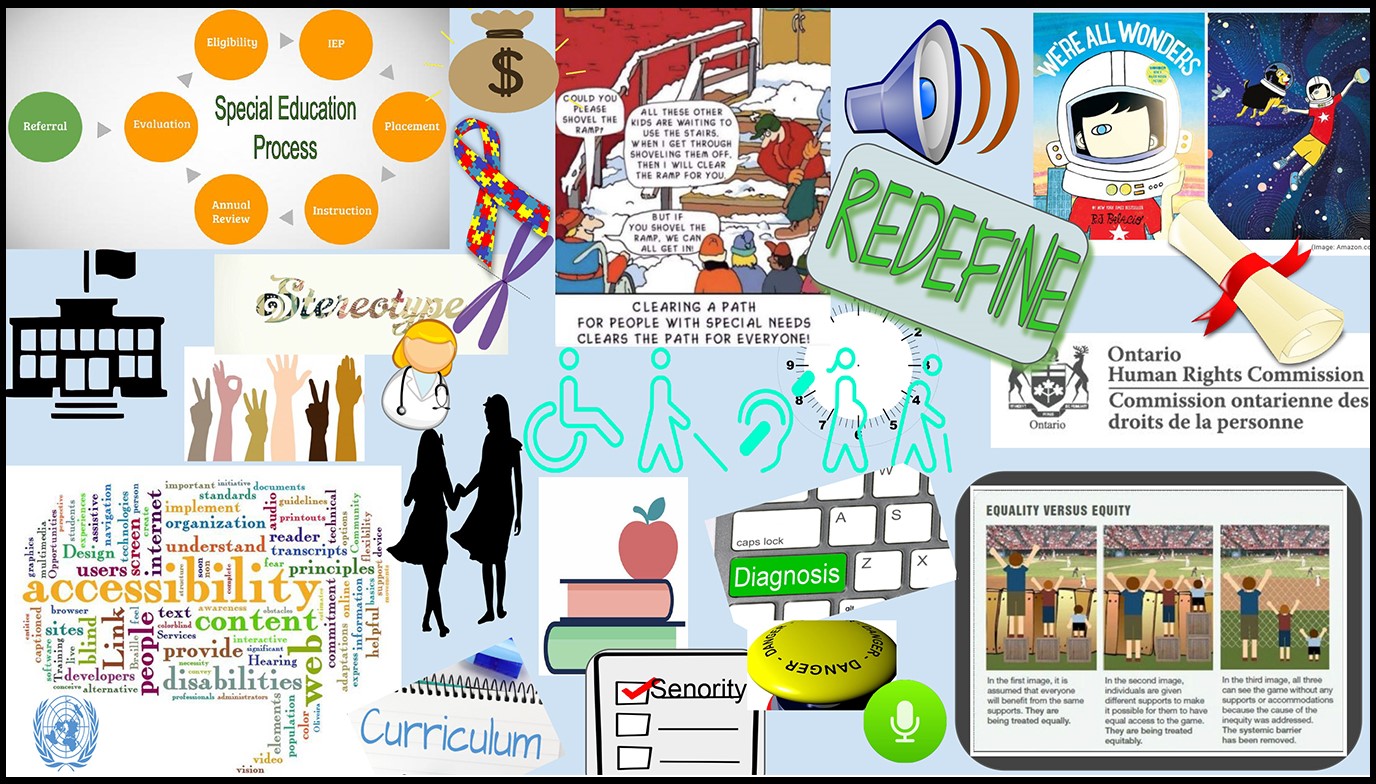8 Special Education

By Julianne Mulgrew
It is easiest to write on what we know. For me, that is special education. This social justice issue is significant due to the inequalities in our education system. Over my lifetime, there have been changes in accepting a person’s uniqueness. These changes can be seen in Government structures, messaging in media and public celebrations of people; however, society can continue to evolve to incorporate adequate advocacy for vulnerable peoples. Having a sister with special needs is the basis of connecting to this issue. Knowing her time as a student, her mistreatment, and the lack of resources has helped me gain insight into where improvements are needed and also guide suggestions to solve injustices.
My sister is diagnosed with Global Development Delay and has struggled significantly with her mental health, experiencing episodes of psychosis. My sister went through the Catholic school system, whose model for special education emphasizes inclusion. I work in the public school system, whose model uses small class placements and suggests integration. Bunch et al. (2011) question if those with special education needs are the only group still considered appropriate to segregate.
When my sister was a student in elementary school, her diagnosis and demeanour did not allot her funding for the support she required. While general funding has increased since she was a student, accessing services remains difficult (People for Education, 2018). The waitlists to even have an initial assessment are lengthy. The Ontario Human Rights Commission points out continued barriers, including inadequate training for families and practitioners and insufficient resources to meet the needs of a person with a disability (OHRC, 2018). To improve student success, UNESCO states that “inclusive education needs to be better embedded within the fabric of education institutions, in both law and policy” (UNESCO, 2022, p. 4). To improve student success rates, we need to continue redefining education, teaching, learning and assessment and how we implement them. Recognizing the inequalities of the education system for those with special education needs is a real social justice issue. Pictures displayed in the collage were chosen to highlight the reality of this problem and the pathway of hope to a better tomorrow. Continuing to bring attention to these problems will help create a sense of belonging for all our community members and allow them to participate fully in their education journey (United Nations, 2022). We will strive to protect and promote everyone’s human rights by continuing to engage in conversations and turn those conversations into beliefs, advocacy and action.
References
Bunch, G., Al-Salah, R., & Pearpoint, J. (2011). Equity, social justice, disability and secondary schools. Inclusion Press. https://inclusion.com/site/wp-content/uploads/2017/03/Equity-Social-Justice-Disability-sample.pdf
Ontario Human Rights Commission. (2018). OHRC submission regarding the government consultation on the education system in Ontario. https://www.ohrc.on.ca/en/ohrc-submission-regarding-government-consultation-educatioN-system-ontario
People for Education. (2018, September 11). Province increases funding for special education. People for Education. https://peopleforeducation.ca/our-work/province-increases-funding-for-special-education/
UNESCO. (2022). The right to education in the 21st century: findings from the international seminar on the evolving right to education. UNESCO Digital Library. https://unesdoc.unesco.org/ark:/48223/pf0000381108
United Nations. (2022). Article 24 – Education. United Nations Department of Economic and Social Affairs Disability. https://www.un.org/development/desa/disabilities/convention-on-the-rights-of-persons-with-disabilities/article-24-education.html

